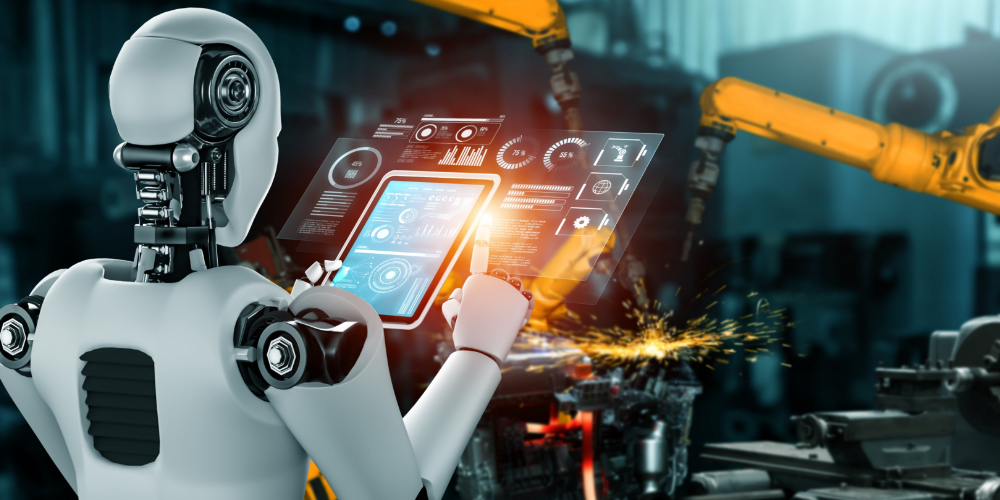Automation, zBlog
RPA Solutions to Optimize Processes and Reduce Costs for Automotive Manufacturers
trantorindia | Updated: July 10, 2021

Automotive Manufacturers have been using the powers of automation for a long time.
It started with implementing robotic processes and processing lines to tackle regular production activities. Now, companies in the automotive industry actively move towards Robotic Process Automation to streamline and simplify many back-office processes.
Robotic Process Automation, short for RPA, can be understood as a piece of software that can be integrated with your business processes to automate some mundane activities, decrease the chance of human errors, and increase efficiency and productivity. RPA has been helping Automotive Manufacturers save time and money while optimizing their business processes. RPA, when combined with AI and other cutting-edge technologies gives rise to hyper-automation – which is an approach that enables organizations to rapidly identify, vet, and automate as many processes as possible. Such hyper-automation has shifted from being optional to being the much-needed backbone of many automotive manufacturers.
Through this article, let’s look at some use cases of RPA solutions in the Automotive industry to get a better understanding of the overall benefits:
Use cases of RPA in the Automotive Industry
RPA allows manufacturers to simplify back-office operations and cut down on many managerial and administrative complexities. In doing so, RPA creates an overall agile work environment for automotive back offices. Let’s look at some features (and use cases) of RPA in the Automotive industry.
- Analyze real-time process monitoring and analytics Smart bots enable real-time reporting that allows Automotive Manufacturers to determine optimal inventory levels and calibrate current operations based on their customer demands. RPAs are not invasive and extract all the required information to help you with deeper analytics with specific data for each executed process.
With RPA, you’ll be able to see the holistic picture of all your back-office operations and will therefore be able to make amends and modifications wherever required to streamline the processes! - Supplier onboarding Automotive Manufacturers need to communicate with dozens of suppliers day in and day out. The majority of their operations will be handicapped without proper supplier onboarding. In today’s world, where seamless data sharing is the need of the hour, automotive companies are using RPA capabilities to transfer their information to suppliers and vice versa safely.
For instance, a leading automotive component maker, switched to Robotic Process Automation to simplify their online collaboration with suppliers and customers across Europe. The company was able to simplify supplier onboarding using automation. It ended up saving them a lot of time that would otherwise be wasted in onboarding new partners. Essentially, RPA did this by making all the relevant data much less scattered, ensuring uninterrupted data flow, and providing an overall air of improved efficiency to the process.
- Freight management Freight management is one task that has always been riddled with manual deficiencies. As a result, this process can severely benefit from RPA solutions. Generally, employees would enter customer data into the Track Management Software, identify the best freight options and routes, send the info to the customer, and wait for confirmation before making any decision. On the surface, it might seem like carrier choice requires human decision-making. However, this is entirely a rule-based process that can be achieved by integrating RPAs into TMS to autonomously assess the information, generate the quote, and book shipment to speed up the operation.
RPA helps in various other aspects of freight management as well, like recommending the best transport route and also managing freight-related payments or claims. The year 2020 saw significant progress on this front, with a major logistics provider announcing a 100% automated practice for matching manufacturing loads to freight trucks. - Inventory management Streamlined inventory control is crucial for any supply chain management. Traditionally, Automotive Manufacturers would employ supervisors to manage inventories and ensure that the inventory levels match the demands. This is a manual, low-value-adding task, which can be riddled with human errors. With the ever-increasing data on customers and partners, Automotive Manufacturers can manage inventories much more seamlessly by integrating RPA.
As an example of this, one of the leading Automotive Manufacturers required their demand planners to manually enter their inventory estimates in the ERP system. Then, the organization deployed a bot that would mine those entries for important data points and update the safety stock levels without needing any human intervention. To take this up further, other tasks of these demand planners can also be automated easily. While this won’t be possible with the simple rule-based approach, a simple Machine Learning model or algorithm could calculate safety stock levels with much higher accuracy and precision.
RPA is making its impact felt on the Automotive industry. As technological advancements keep happening, the application of RPAs will become more and more universal within this industry. A McKinsey & Company report suggests that RPA is expected to be one of the most disruptive technologies by 2025, and we’re surely going to see more widespread adoption of this technology across different domains and industries!
Partner with us and optimize your processes while reducing costs!



